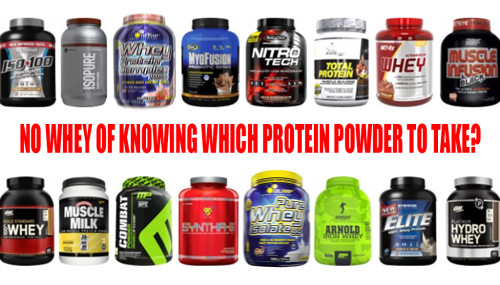However, knowing that we should take more protein and what type of protein we should take are two entirely different things. There are literally dozens of protein powder products on the market and it is difficult to know which is right for you. Here is a helpful guide to selecting and understanding the types of protein powders available and the effects they have on your body.
Intro to Protein: Protein Isolate vs Concentrate
Isolate and concentrate refer to how the protein is made. For starters, milk that is filtered creates whey protein and when this is dried it becomes whey protein concentrate. Whey protein concentrate that is processed and purified even further becomes whey protein isolate. So while both whey concentrate and whey isolate will provide you the muscle-building qualities you are looking for, whey isolate will break down quicker in the body than whey concentrate which is why it tends to get the nod over concentrate. However, whey concentrate is less processed and some say this means it provides more health benefits than isolate. The long and short of it is that whey concentrate is the cheaper option (try to get one that is at least 80% protein) and whey isolate is easier on the stomach and absorbs more quickly.
Types of Protein Powders
Whey
When a source of protein contains all the essential amino acids the body needs, it is referred to as a complete protein. Whey protein is a complete protein that comes from cow’s milk and is considered to be easily digestible. In addition to providing protein, whey also contains fats, carbs, vitamins and minerals which is why it tends to be one of the most popular protein powders. While whey isolate and concentrate are good options, stray clear if you have a lactose or dairy allergy as these are derived from milk.
Casein
Casein protein is also derived from milk and is known for its high amounts of calcium, amino acid content, and its slow digestion rates. However, while slow digestion is good for those looking to stay fuller, longer, athletes who want quick absorption post workout would likely not enjoy the effects of this absorption. Therefore casein is commonly recommended as a supplement with meals, at bedtime, or at times when rapid amino acid absorption is sought.
Soy
Soy is the only plant-based protein on this list that is a complete protein, meaning it provides the complete supply of amino acids to the body. It is also a great option for people with dairy allergies or who are lactose intolerant. Soy has come under some scrutiny and there have been claims that link soy consumption with increased risk of breast cancer for women and suppression of testosterone in men. Most of these studies have been rebutted, and soy has shown to be a good source of protein for athletes and a good source of complex carbs, healthy fats and fiber.
Hemp
Hemp is a plant-based protein and is high in fiber, is vegan-friendly, and is extremely hypoallergenic. Because it is derived from the cannabis plant and is not harvested easily, it does make it one of the most expensive protein powders on the market. Many hemp protein powders contain all 21 amino acids making these a complete protein but consumers should be aware this is not always the case.
Pea
Because pea protein is not a complete protein, those who take it are advised to supplement it with other sources of protein (such as hemp). The protein is very digestible, and can be a good source for athletes who are looking to lose weight due to its satiating properties. Pea protein also contains very few artificial ingredients or additives, making it one of the purest sources of protein on the market.
Brown Rice
You know rice as a carbohydrate but it does contain a small amount of protein. This protein is extracted from the rice to create brown rice protein powder. Like pea, it is not a complete protein so it needs to be paired with other protein powders – like pea or hemp – to give you the full gamut of amino acids. Still, brown rice protein powder is hypoallergenic, easily digestible and provides an ample supply of protein.



Post your comment